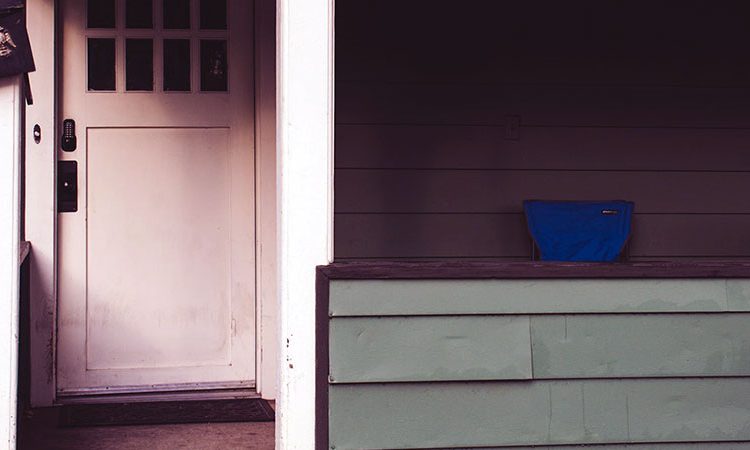Content Warning: suicide, loss
How are you?
Three little words. “How are you?” One easy question? Or one loaded question? How many times a day do we get asked this question or ask it of someone else? Generally, our question is as automatic as our response. Frequently “how are you” is a superficial question to which we give a pat answer. How are you….I’m fine, how are you? Never giving, never expecting an honest answer to the question. Some days it’s just easier to answer this way.
Since my life was forever changed by my husband’s suicide, I’m never sure how to answer that question. Partly because some days, or even minutes, I don’t know the answer to that. For a time after his death, I said I was okay, but I didn’t even know if I was okay or not. In the aftermath of the trauma I had no clue what was keeping me going, so I assumed I must be okay. I was still moving after all. I was functioning on some level. Making decisions as needed. Getting up and going to work, taking care of things at home. So I must be, at the very least, okay. Right? Now, when I’m asked it causes me to pause and I have to make a split-second decision on how to answer. Self? How are you – no really, how are you? Deep down inside, how are you? And do I really want to share that?
I don’t know what people expect of those who are surviving a catastrophic loss. I don’t know what to expect of myself as I walk this path. I don’t know what’s reasonable, or probable, or possible. There is nothing normal about it. There is no way to anticipate or prepare for this. I think that people are as frightened of really connecting with me, as I am of opening up to them. After all, if it could happen to me, it could happen to them. That makes me kind of risky for them as it reminds them of how very fragile life is. It makes it easier for them to talk about me when I am not present than to talk to me when I am. I have never been so visible and completely invisible at the same time. I know that there are only a couple of safe topics people will bring up to me. Work is one topic and my dogs are the other. Rarely am I asked how my weekend was. Widows don’t have social lives worth discussing apparently. Nor do most ask about my holiday celebrations. Perhaps we don’t have holidays either, but I beg to differ. We have holidays, and we have weekends. We sometimes even have social lives. But those days hurt our hearts and often tender hard memories. No one knows how to really ask “how are you”, so they keep to the safe topics. It makes for a lonely life. I will admit, it’s not just them, it’s me too. I struggle with what to say, when to say it, and how much to share.
I know that no two days on the path of grief and healing are ever the same. Growth comes but in painful spurts. Tears happen when you least expect it, laughter is always welcome but often fleeting, the loneliness is heart-wrenching. Can I just say, sweet Jesus, that I need more hugs. I need less, let me know if you need something, and I need more I’ll just sit with you in this moment. I need someone to show up with comfort food, chips and cheese, and the fixings for a good martini. I need people to understand that every facet of my existence changed, but I will be stronger because of it. I just have to find my way through the day in and day out of healing. Nearly two years have passed. While to others it seems like it happened a long time ago, to me it feels like just yesterday. It’s not something one gets over, it’s a daily process through it.
Then there are the constant questions that will never have answers, the second-guessing, the intense regrets. I know there are people I feel comfortable with sharing my brokenness. People who either walk the same path or have sufficient empathy to partner with me. People who I would never have expected to be sources of comfort but the larger plan in life brings them to me as needed. I know that some others don’t need to know my story, or how I really am. That is okay. We get to choose who we let into our pain.
It’s a daily battle to try to grasp why someone would choose death over life. Likewise, it is a daily battle to build a new life after a loss like that. Enough of a challenge that the question, “How are you”, becomes quite complicated. Most everything becomes quite complicated. In fact, your whole horizon shifts, leaving you shaken and unsteady.
I pause now when asked, “How are you”? I ask, ‘Self, how are you?’ I might need to ask that many, many times a day. How am I? It’s okay if I don’t know. It’s okay if one second I feel okay, and the next I don’t feel okay at all. It’s okay if it’s days and days of not feeling okay. This place I am right now, will not always be just this way. It won’t always be this hard. I also look at others and say, friend, how are you? Neighbor, how are you? I pray you take a moment to answer that honestly in your heart. Answer it with faith that if it’s a hard day or days, they won’t always be hard. Answer it with hope, because the best is yet to come. Answer it with gratitude. Even in times of uncertainty and deep grief, there are things to be grateful for. Answer it with your shattered self leaning into the love that is so readily available. Then answer accordingly, with an open heart and soft words.







Leave a Reply